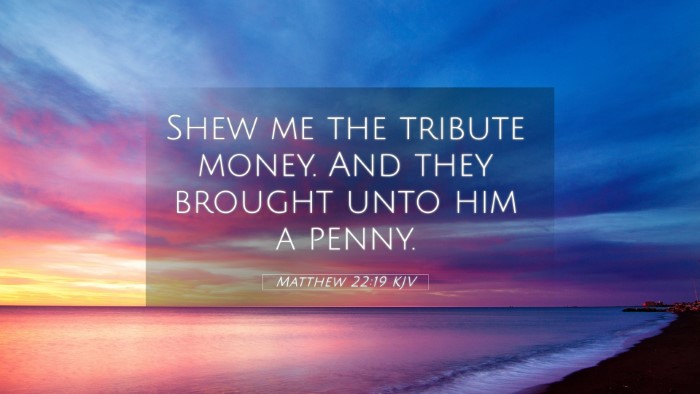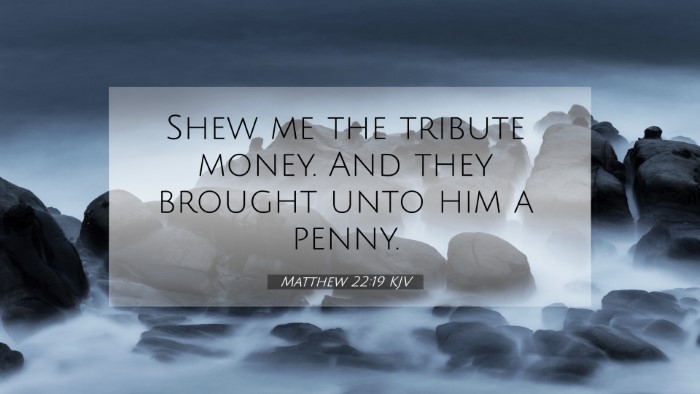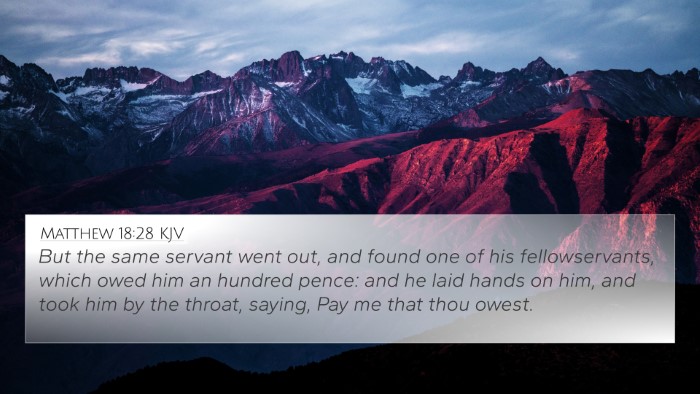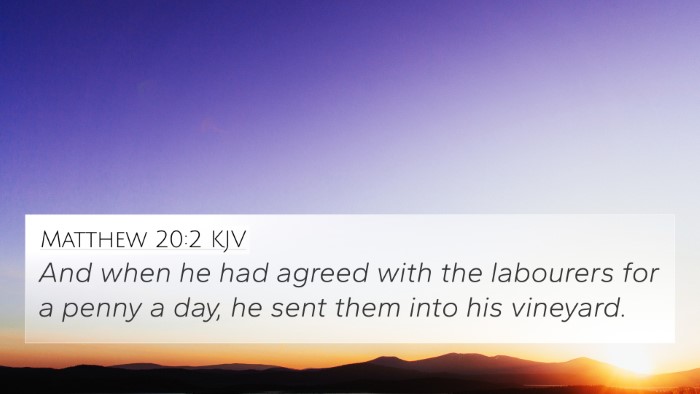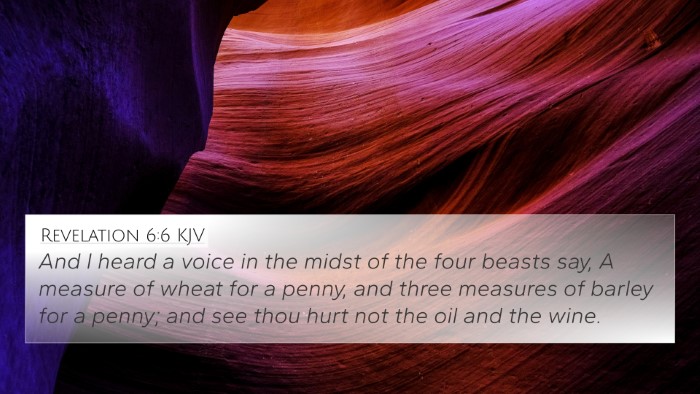Understanding Matthew 22:19
Matthew 22:19 states: "Show me the tribute money." And they brought unto him a penny. This verse captures a significant moment in the ministry of Jesus as He engages in dialogue with the Pharisees and Herodians regarding the issue of paying taxes to Caesar.
Summary of Insights
Commentaries provide profound insights into this scripture, illustrating its theological and practical implications for believers. The primary themes revolve around authority, obligations to government, and the separation of spiritual and worldly duties. Here are consolidated interpretations from notable commentaries:
- Authority and Societal Structure: Matthew Henry observes that Jesus does not shun the authority of earthly rules, implying that God's kingdom does not negate civic responsibility. This highlights the duality of Christian life in adhering to both divine and civil obligations.
- Bringing forth the Coin: Albert Barnes emphasizes the significance of the coin Jesus requests. The choice of denarius, or penny, serves to illustrate the material nature of taxes while engaging the hearts of His listeners to reflect on spiritual realities.
- Separation of Realms: Adam Clarke explains that Jesus’ response about rendering to Caesar what is Caesar's addresses the nature of obligations in both the secular and spiritual realms. This dialogue asserts that believers are to maintain fidelity to both authorities without compromising faith.
- Screening Hypocrisy: The interaction serves as a moral examination of the Pharisees’ intentions, revealing their hypocrisy as they sought to entrap Jesus. Thus, it demonstrates the importance of integrity in spiritual matters.
Bible Verse Cross-References
This verse connects to several other scriptures through themes of responsibility, authority, and the nature of God's kingdom:
- Romans 13:1-7: This passage discusses the Christian’s duty to governing authorities and underscores the principle of submitting to civil laws as God's order.
- Matthew 17:24-27: Here, Jesus addresses the temple tax, again illustrating the relationship between followers and secular obligations.
- 1 Peter 2:13-17: Peter encourages believers to honor authorities for the Lord’s sake, reinforcing the idea of submitting to authority as part of human responsibility.
- Mark 12:14-17: This parallel passage in Mark reflects a similar interaction where Jesus addresses the issue of taxes within the same context, providing a comprehensive understanding of His response.
- Luke 20:22-25: Another synoptic mention of the tax question, which adds depth to the discussion on civic duties versus spiritual commitments.
- Philippians 3:20: This verse reminds believers that their citizenship is in heaven, emphasizing the eternal perspective believers must maintain while engaged in earthly matters.
- Hebrews 11:16: This contributes to the theme of believers looking forward to a better country, thus framing earthly engagements in light of their heavenly kingdom.
Connections Between Bible Verses
The connections between these verses reflect a comprehensive theme of duty and responsibility, balancing earthly life with spiritual truth:
- Thematic Bible Verse Connections: The concept of dual citizenship arises, reinforcing that spiritual obligations do not exempt followers from earthly responsibilities.
- Cross-references for Sermon Preparation: Pastors and teachers can use these verses to illustrate the complexities of faith applied in a worldly context, particularly during discussions on governance.
- Comparative Study of Pauline Epistles: Exploring how Paul addresses living in a secular society, as seen in Romans and Philippians, can provide further insights on this dialogue initiated by Jesus.
Conclusion
In examining Matthew 22:19, believers can gain a deeper understanding of their role within society as they navigate the intricate relationship between divine authority and earthly governance. The insights from Matthew Henry, Albert Barnes, and Adam Clarke collectively enhance our comprehension of these thematic connections, encouraging believers to live out their faith responsibly and reflectively. Through the lens of these cross-references, individuals can discern the broader biblical narrative that calls for a harmonious existence between the heavenly and the earthly.

